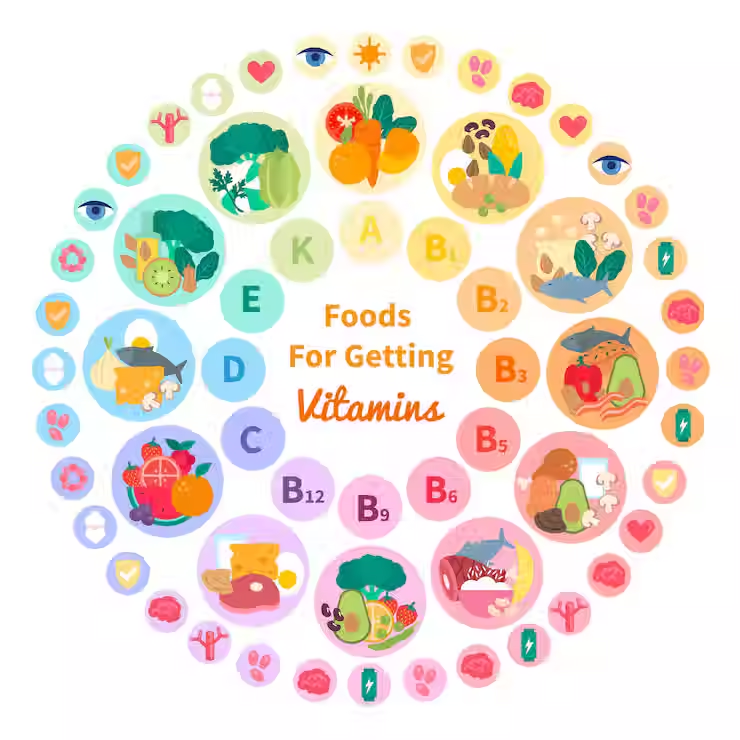Nutraceuticals for Growing Kids: What Your Child Needs for Healthy Growth
- seozeon123
- Sep 16, 2025
- 3 min read
Proper nutrition is fundamental for a child’s healthy growth and development. While a balanced diet of whole foods is the best way for children to get the nutrients they need, certain nutraceuticals—food-derived substances that provide health benefits—can help fill nutritional gaps.

Here is a breakdown of the essential nutrients for growing kids and where to find them:
Key Vitamins
Vitamin A – Important for vision, immune function, and development of cells and tissues.
Food sources: Milk, cheese, eggs, and yellow to orange vegetables such as carrots and sweet potatoes.
B Vitamins (B6, B12, Folate, etc.) – The B vitamins (including B6, B12 and Folate) is crucial for energy metabolism ,brain function and production of red blood cells.
Food sources: Meat, poultry, dairy products, whole grains, nuts, and leafy green vegetables.
Vitamin D – Essential for bone and tooth formation, as it helps the body absorb calcium.
Food sources: Fatty fish, egg yolks, and fortified foods.
Vitamin K – Supports bone health and proper blood clotting.
Food sources: Leafy green vegetables and vegetable oils

Essential Minerals
Calcium – The main component of bones and teeth, crucial for building a strong skeletal structure. It also supports muscle and nerve function.
Food sources: Milk, cheese, yogurt, fortified plant-based milk, and leafy green vegetables.
Iron – Necessary for producing hemoglobin, which carries oxygen in the blood. Iron deficiency can lead to anemia, causing fatigue and impaired development.
Food sources: Red meat, poultry, fish, beans, lentils, and iron-fortified cereals.
Zinc – Supports normal growth and development, metabolism, and immune function.
Food sources: Meat, seafood, dairy, nuts, and whole-grain foods.
Iodine – Required for the formation of thyroid hormones, vital for healthy growth and development. Deficiency can cause developmental delays.
Food sources: Seafood, dairy products, and iodized salt.
Other Important Nutraceuticals
Protein – The building block of the body, essential for growth, repair, and tissue maintenance.
Food sources: Lean meats, poultry, fish, eggs, dairy, beans, and legumes.
Omega-3 Fatty Acids – Crucial for brain development and cognitive function.
Food sources: Fatty fish, walnuts, flaxseeds, and chia seeds.
Probiotics – Beneficial bacteria that support a healthy gut, improve digestion, and strengthen immunity.
Food sources: Yogurt with live cultures and other fermented foods.
The Role of Supplements
While a diverse and healthy diet is the best way for children to get their nutrients, some may benefit from supplements. This may include children with dietary restrictions (e.g., vegan or dairy-free diets) or those with certain medical conditions.
Before giving your child any supplements, it is crucial to consult a pediatrician. They can determine if supplementation is necessary and recommend the correct dosage. It is important to remember that excessive intake of certain vitamins and minerals—particularly fat-soluble vitamins (A, D, E, and K)—can be harmful.
Zeon Lifesciences Role in Child Nutrition
Zeon Lifesciences is a leading manufacturer addressing child nutrition through high-quality, research-backed nutraceuticals that support growth, immunity, gut health, and overall wellness for children.
References
Nevins, J. E. H., Donovan, S. M., Snetselaar, L., Dewey, K. G., Novotny, R., Stang, J., Taveras, E. M., Kleinman, R. E., Bailey, R. L., Raghavan, R., Scinto-Madonich, S. R., Venkatramanan, S., Butera, G., Terry, N., Altman, J., Adler, M., Obbagy, J. E., Stoody, E. E., & De Jesus, J. (2021). Omega-3 fatty acid dietary supplements consumed during pregnancy and lactation and child neurodevelopment: A systematic review. Journal of Nutrition, 151(11), 3483–3494. https://doi.org/10.1093/jn/nxab238
Beluska-Turkan, K., Korczak, R., Hartell, B., Moskal, K., Maukonen, J., Alexander, D. E., Salem, N., Harkness, L., Ayad, W., Szaro, J., Zhang, K., & Siriwardhana, N. (2019). Nutritional gaps and supplementation in the first 1000 days. Nutrients, 11(12), 2891. https://doi.org/10.3390/nu11122891
Chevalley, T., Brandi, M. L., Cashman, K. D., Cavalier, E., Harvey, N. C., Maggi, S., Cooper, C., Al-Daghri, N., Bock, O., Bruyère, O., Rosa, M. M., Cortet, B., Cruz-Jentoft, A. J., Cherubini, A., Dawson-Hughes, B., Fielding, R., Fuggle, N., Halbout, P., Kanis, J. A., … Rizzoli, R. (2022). Role of vitamin D supplementation in the management of musculoskeletal diseases: Update from a European Society of Clinical and Economical Aspects of Osteoporosis, Osteoarthritis and Musculoskeletal Diseases (ESCEO) working group. Aging Clinical and Experimental Research, 34(11), 2603–2623. https://doi.org/10.1007/s40520-022-02279-6
Domellöf, M., Braegger, C., Campoy, C., Colomb, V., Decsi, T., Fewtrell, M., Hojsak, I., Mihatsch, W., Molgaard, C., Shamir, R., Turck, D., & Van Goudoever, J. (2013). Iron requirements of infants and toddlers. Journal of Pediatric Gastroenterology and Nutrition, 58(1), 119–129. https://doi.org/10.1097/mpg.0000000000000206



Comments